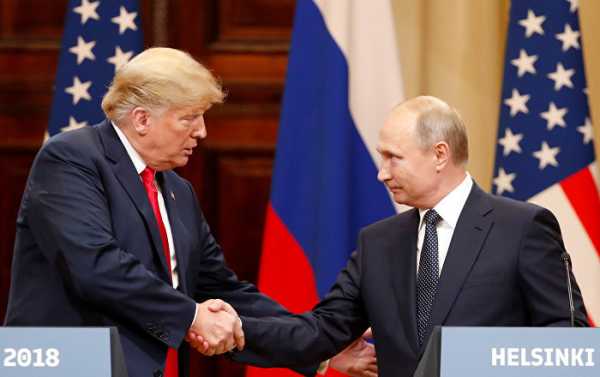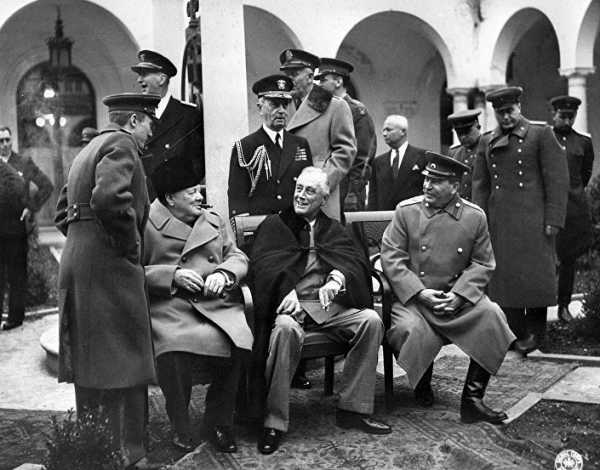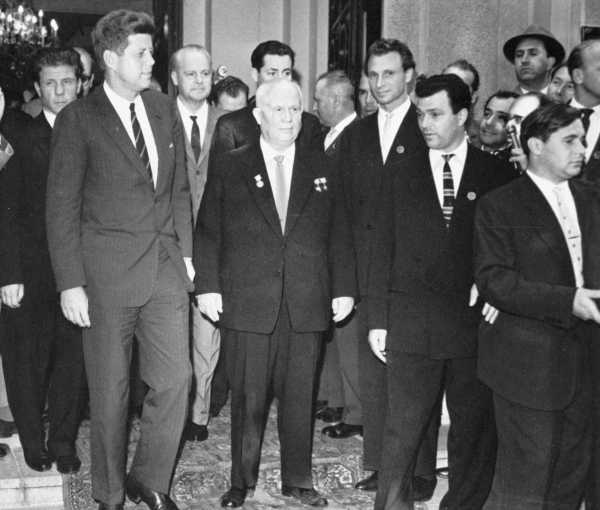
It takes guts for Donald Trump to go against the flow, US journalist and political analyst Caleb Maupin told Sputnik, commenting on the US president’s talks with Vladimir Putin. Maupin draws historic parallels between the US establishment’s wrath against Trump and late President John F. Kennedy in regard to US-Russian relations.
“Every US president since Franklin Delano Roosevelt has met with the Russian leaders,” said American journalist and political analyst Caleb Maupin referring to Roosevelt’s meetings with Soviet leader Joseph Stalin. “It’s almost a rite of passage for American presidents.”
Commenting on the July 16 Helsinki summit between US President Donald Trump and his Russian counterpart, Vladimir Putin, and Trump’s subsequent decision to invite Putin to Washington, Maupin highlighted that it “certainly reeks of boldness,” adding that “the media overdrive in the aftermath of Helsinki has been extreme.”
However, according to Maupin, “Trump’s political success can largely be attributed to a kind of crassness, and a kind of disregard for what his critics say.”
“His supporters admire his ability to take actions that seem to go against what is politically correct and safe for a politician,” the journalist noted. “Trump making this announcement, in the midst of the extreme accusations, fit a pattern of Trump winning credibility with his supporters, by going out of his way to offend his critics. If his critics denounce him for doing something, he does it even more in order to taunt them.”

The Yalta (Crimean) conference of three allied powers on February 4-11, 1945. In the center (seating from left to right): British Prime Minister Winston Churchill, US President Franklin Delano Roosevelt and Marshal of the USSR Joseph Stalin
Is It a Treason to Cast Doubt on US Spies’ Words?
Maupin highlighted that “the allegations of ‘treason’ seem to revolve around the idea that Trump said he disagreed with the intelligence community’s allegations against Russia.”
“The word ‘treason’ is a loaded term in US politics,” he explained. “Often anti-war protesters were accused of ‘treason’ during the Vietnam War or the invasion of Iraq. The fact that the liberals are now utilizing the constant accusations of disloyalty that once were definitive of the US right-wing is a dangerous turn in US politics. Trump has not committed the constitutional definition of treason, and he is not an agent of a foreign power.”
Still, the political analyst wonders, since when has it become a sign of disloyalty to cast doubt on the US intelligence community’s statements.
“Intelligence agencies lie all the time,” Maupin pointed out. “The world of spies and espionage is a world of classified government secrets and deception. The FBI had an entire policy of deceiving the US public and suppressing the voices of dissident elements during the 1950s, 60s and 70s. COINTELPRO was widely documented, and it involved all kinds of deception. The CIA has often deceived the US public, with Project Mockingbird, designed to control the US press, and efforts to craft political and cultural discourse such as the ‘Congress for Cultural Freedom’ program.”
However, the American journalist recalled that Trump had backtracked from his statement throwing the “Russian meddling” narrative into doubt. “Says he simply misspoke,” Maupin remarked.
Likewise, the Trump administration was forced to postpone a second Trump-Putin meeting that was initially planned for this fall: Citing the ongoing Special Counsel Robert Mueller investigation into alleged “Trump-Russia collusion” during the 2016 presidential race, National Security Adviser John Bolton announced that the next summit would be delayed until next year.
Trump and JFK: What’s Behind US Establishment’s Ire?
Nevertheless, Trump is still “widely perceived as being somehow in opposition to the standard atmosphere of hostility to Russia,” Maupin remarked. “Because of this, anything that can be interpreted as sympathy or friendliness to Russia is presented as a scandal by the mainstream press.”
The journalist has drawn a historical parallel between the recent fuss over Trump-Putin talks and the US establishment’s criticism of President John Fitzgerald Kennedy’s policy toward the USSR.
“The rhetoric surrounding Helsinki is reminiscent of the rhetoric against John F. Kennedy prior to his assassination,” Maupin highlighted. “When Kennedy refused to invade Cuba following the failed ‘Bay of Pigs’ operation, and when he refused to escalate the Vietnam conflict, accusations of treason were widespread. The John Birch Society and even high-ranking members of the US military accused Kennedy of being a Soviet sympathizer. This was the atmosphere surrounding Kennedy at the time of his death.”

Nikita Khrushchev, first secretary of the CPSU Central Committee and Prime Minister of the USSR, and the U.S. President John Kennedy at the Soviet embassy in Vienna. (File)
Oil and Gas: Yet Another Bone of Contention Between US, Russia
Besides, there is also an economic component in the ongoing US-Russian controversy, he noted.
“The USA is now refining over 11 million barrels of oil per day,” Maupin stressed. “The domestic energy boom following the widespread use of hydraulic fracking puts the US in a position of being very threatened by Russia economically. The US has so much oil and gas now, and it needs to sell it. Russia is functioning as a competitor on the global market, selling its natural resources. There is a fear now as oil prices rise that the Russian government apparatus will get stronger and Russian influence around the world will also expand.”
Thus, Trump’s talk of the US’s energy dominance actually means “pushing back Russia, a natural gas and oil giant,” in the interests of the Wall Street and London-based oil firms, the American journalist concluded.
Sourse: sputniknews.com






